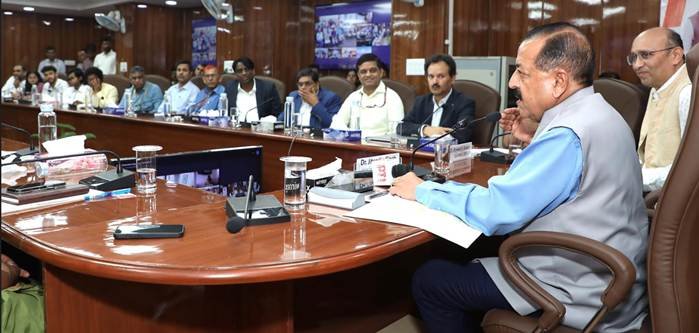Zinnov sees exponential growth
IoT investments in India are expected to triple to touch ~US$15 billion by 2021 across both technology products and services components from close to US$5 billion in 2019.
This was forecast by Zinnov, a leading global management and strategy consulting firm, which released the findings from its latest study titled, “India – Emerging Hotbed of IoT Opportunities”, on 19 June 2020.
The study highlighted that by the end of 2019, India had 200-250 million connected devices. Zinnov estimates that this number will grow tenfold to touch 2 billion devices by 2021, signaling the exponential market growth in the next few years.
In fact, IoT adoption has exploded in the last three years, with enterprises spending billions of dollars in testing and deploying several IoT use cases.
A large part of this spend, about 60-70%, is comprised of software and hardware products, while the rest is on services. Manufacturing, Automotive & Transportation, and Energy & Utilities are the top 3 verticals driving investments in IoT.
Five key segments are contributing to the overall IoT market demand in India – Large Enterprises, Global Capability Centers (GCCs), Small Medium Businesses (SMBs), Consumers, and the Government.
There are over 1,200 public-listed Large Enterprises in India, with a current IoT adoption rate of around 35%.
The base of 1,400+ GCCs is further propelling the IoT segment in India and these GCCs are rapidly testing, implementing, and scaling IoT technologies and use cases.
With 75 million+ SMBs, India has the second-highest base of SMBs in the world. About 50,000 of these leverage some form of advanced digital technology solutions for driving business operations, including Artificial Intelligence (AI), Cloud, IoT, etc.
These burgeoning segments, coupled with the increasing connectivity and smartphone penetration across the country, is driving the adoption of IoT-based solutions in the consumer segment.
The Indian Government is also driving large-scale initiatives such as the Smart Cities project with a budget outlay of USD 31 Billion between 2015 and 2022.
Zinnov analysis also highlighted the specific use case categories where IoT investments by Large Enterprises are scaling.
Industry 4.0 or Smart Manufacturing and Connected Assets are the two most prominent categories with 20-25% of investments directed towards each of these.
Spends on Connected Products and Connected Logistics account for 15-20% each, with the share of Connected Workers accounting for 5-6%.
In the case of Industry 4.0, the focus is on the digitalization of individual factories for enhanced throughput and quality on the shop floor, which is then scaled as multi-factory deployments for higher enterprise-level efficiencies.
Connected Assets use cases revolve around real-time operational intelligence and predictive maintenance of assets, while Connected Products is about building intelligent products to derive insights such as performance, usage patterns, personalized recommendations, etc.
Connected Logistics focuses on reducing supply chain friction and Connected Workers category comprises of use cases around worker safety, AR-assisted operations, etc., Zinnov’s analysis further revealed.
For this study, the top 200 of the 1,400+ GCCs were evaluated.
Zinnov shared that a staggering 55% of these GCCs are working on IoT, while nearly 50% of the 35 major global IoT platform companies have engineering centers in India.
IoT is clearly a priority for some of the largest GCCs in India, with even technology giants have made significant investments in IoT; in many cases, the global IoT programs are being driven from India.
The Zinnov study also disclosed that India is one of the richest talent ecosystems for IoT, with 30-40K professionals dedicatedly working on this technology.
With 25-30%, Bangalore tops the IoT talent pool, followed by Mumbai and Delhi-NCR at 10-15% each. This talent is spread across GCCs, Service Providers, and enterprises, and ranges from software developers to hardware engineers, AI/ML experts, to IoT security professionals, required for any successful IoT deployment.
Speaking about the study, Prankur Sharma, Head of IoT Practice, Zinnov, said, “India is one of the most vibrant IoT ecosystems in the world, with various supporting enablers making it conducive for companies looking to serve global demand beyond national boundaries.
“The 5 major enablers propelling the Indian IoT market include the IT talent, the dynamic start-up ecosystem, the 10,000+ strong base of IT Service Providers, the robust digital infrastructure that the government is investing in, and the dedicated IoT Centers of Excellences (COEs) being set up.
“Large Enterprises in India are leveraging COEs as test beds for IoT use cases and initiatives. This, in conjunction with the fact that close to 10% of the billion-dollar Large Enterprises in India have set up IoT-focused COEs, makes the estimates more compelling.
“With the various ecosystem entities working closely to conceptualize, support, and scale IoT programs, India has emerged as one of the top global IoT hotspots,” said Sharma.
Founded in 2002, Zinnov is a global management and strategy consulting firm, with a presence in Santa Clara, Houston, Bangalore, Gurgaon, and Paris. Over the past 18 years, Zinnov has successfully consulted with over 250+ Fortune 500 enterprises to develop actionable insights to help them accelerate their Digital Transformation journeys to create value – across dimensions of both revenue and optimization. fiinews.com










